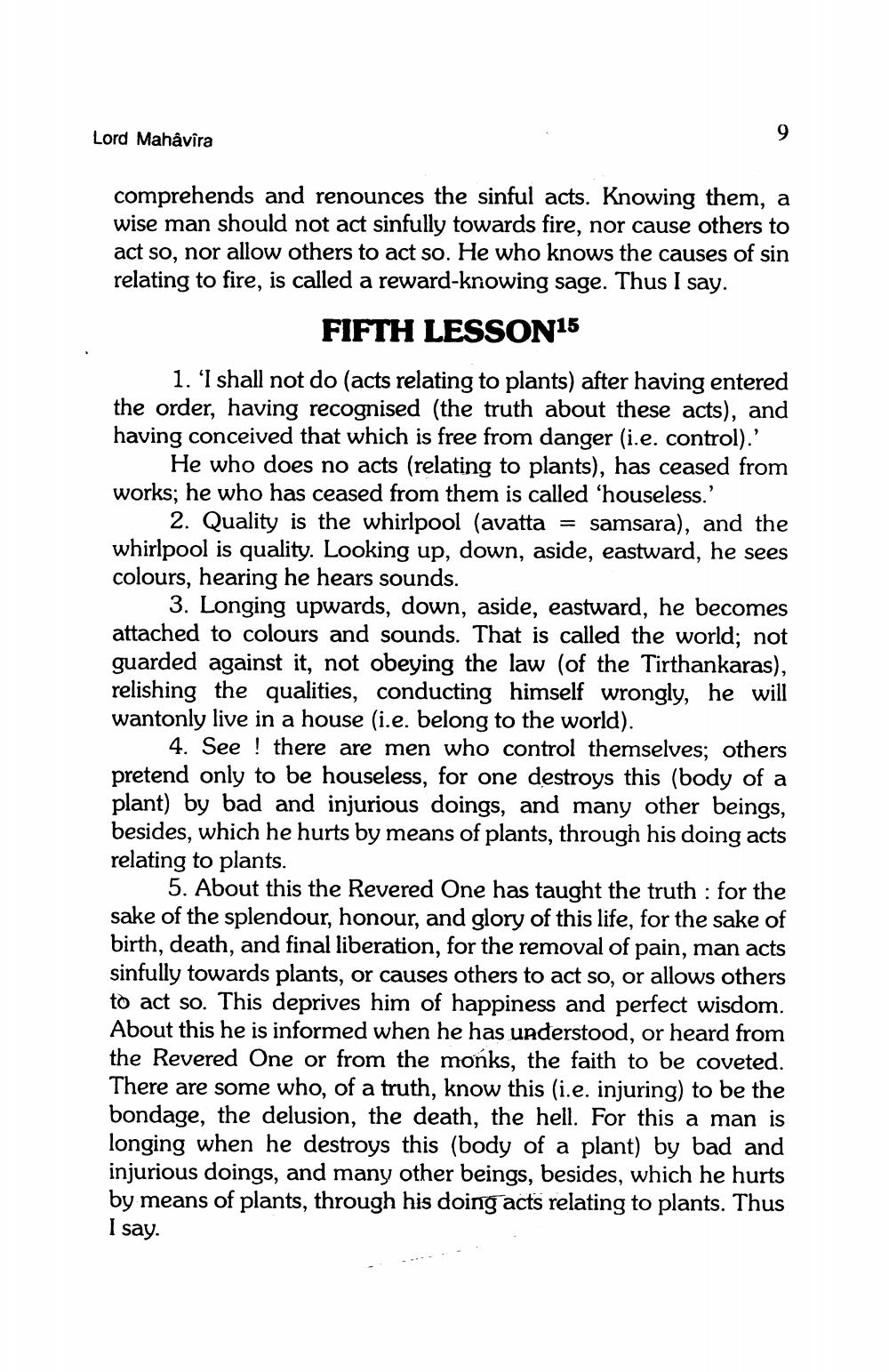________________
Lord Mahavira
comprehends and renounces the sinful acts. Knowing them, a wise man should not act sinfully towards fire, nor cause others to act so, nor allow others to act so. He who knows the causes of sin relating to fire, is called a reward-knowing sage. Thus I say.
FIFTH LESSON15
1. 'I shall not do (acts relating to plants) after having entered the order, having recognised (the truth about these acts), and having conceived that which is free from danger (i.e. control).'
He who does no acts (relating to plants), has ceased from works; he who has ceased from them is called 'houseless.'
2. Quality is the whirlpool (avatta = samsara), and the whirlpool is quality. Looking up, down, aside, eastward, he sees colours, hearing he hears sounds.
3. Longing upwards, down, aside, eastward, he becomes attached to colours and sounds. That is called the world; not guarded against it, not obeying the law (of the Tirthankaras), relishing the qualities, conducting himself wrongly, he will wantonly live in a house (i.e. belong to the world).
4. See ! there are men who control themselves; others pretend only to be houseless, for one destroys this (body of a plant) by bad and injurious doings, and many other beings, besides, which he hurts by means of plants, through his doing acts relating to plants.
5. About this the Revered One has taught the truth : for the sake of the splendour, honour, and glory of this life, for the sake of birth, death, and final liberation, for the removal of pain, man acts sinfully towards plants, or causes others to act so, or allows others to act so. This deprives him of happiness and perfect wisdom. About this he is informed when he has understood, or heard from the Revered One or from the monks, the faith to be coveted. There are some who, of a truth, know this (i.e. injuring) to be the bondage, the delusion, the death, the hell. For this a man is longing when he destroys this (body of a plant) by bad and injurious doings, and many other beings, besides, which he hurts by means of plants, through his doing acts relating to plants. Thus I say.




